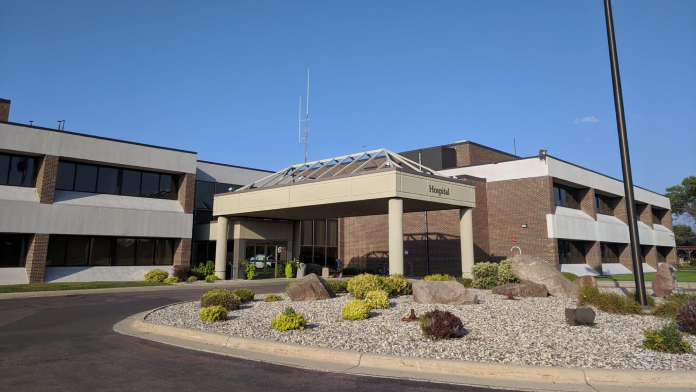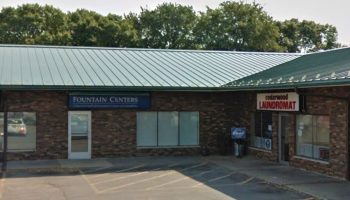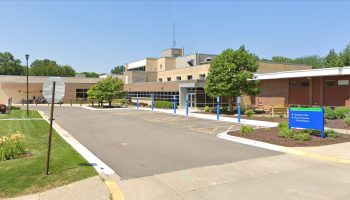About Mayo Clinic Health System Fairmont Behavioral Health
The Mayo Clinic Health System in Fairmont is just one of several locations under this organization across Minnesota. Various healthcare services are available, including addiction treatment services for adults.
Here, drug rehab services have been available since 1974 so, you can trust you’re in safe hands at a facility with decades of experience in this area. Financial support is available, and insurance options are also accepted, including Medicare and Medicaid.
Outpatient Addiction Treatment Services in Martin County
Step into a culture of healing here in Fairmont, where you can safely tackle your substance abuse issues in the company of supportive and knowledgeable professionals. Up-to-date research on treatment practices, along with fundamentals like dignity and respect are the bedrock of this center’s approach to care.
You’ll be guided by a tailored treatment plan, developed to account for your unique needs and preferences. Once you’ve undergone all the essential assessments on arrival, you can access various treatment services like individual and group therapy, family and addiction education, and transition services, all held together by 12-step recovery principles.
You’ll also take part in relapse prevention sessions, though a separate relapse track is also provided, along with a specialized, age-appropriate teen program. As for the therapeutic styles used here, you can expect most sessions to be guided by cognitive behavioral therapy (CBT).
Referrals for Medication-Assisted Treatment and Residential Care
Should you need medication assisted treatment (MAT), you may be referred to the Mayo Clinic in Albert Lea, just an hour’s drive away. Here, a residential drug rehab program is also available for adult men struggling with severe substance abuse.
Levels of Care
-
Inpatient
Inpatient and residential programs provide round-the-clock medical and emotional support as you live at the treatment facility. This level of care may be recommended if you have severe addictions or mental health conditions since it removes outside distractions and allows you to focus solely on therapy.
-
Outpatient
In outpatient therapy, you’ll attend therapy sessions several times each week while living at home. This is ideal if you have a strong support system and a lower risk of relapse. Outpatient treatment offers flexibility to maintain work, school or family obligations.
-
Aftercare
Aftercare programs provide ongoing support after you complete a rehab program. They may include several components to help you maintain sobriety including therapy, community support groups and relapse prevention strategies. This gives you a network of resources as you reintegrate into your daily life.
-
Dual Diagnosis
Dual diagnosis programs address substance use disorders and co-occurring mental health conditions simultaneously. This integrated approach to care improves the likelihood of long term recovery and stability by addressing the root causes of addiction.
Detox Service Setting
-
Inpatient Detox
Inpatient detox occurs in a dedicated treatment facility. You’ll live there around the clock and receive intensive medical support and supervision to help manage your withdrawal symptoms. It is suitable for individuals with moderate to severe addictions as it ensures a stable detox environment.
-
Outpatient Detox
Outpatient detox gives you access to medically supervised withdrawal services while still allowing you to live at home. You’ll attend a clinic for treatment and monitoring. This flexible option is suitable for those with mild to moderate withdrawal symptoms who have strong support systems.
Programs
-
Adult (18+)
Adult programs address the substance use and life challenges specific to adults. Therapists can deliver sessions in individual, group and family settings. Services often include job support and life skills training in a structured environment.
-
Alcohol Detox
Alcohol detox programs offer medical support to help individuals withdraw safely from alcohol. Your care team may use medications to ease your symptoms and provide medical monitoring to address complications.
-
Cognitive Behavioral Therapy
Cognitive behavioral therapy focuses on changing harmful thought patterns and behaviors associated with addiction. You’ll learn healthier coping mechanisms by identifying and replacing negative thoughts. This improves your emotional resilience and decreases your relapse potential.
-
EMDR Therapy
EMDR stands for eye movement desensitization and reprocessing therapy. It helps you process traumatic memories that may underlie addiction. You’ll learn how to reduce emotional distress and begin healing from past events. This makes it effective for trauma related addiction causes.
-
LGBTQ Friendly
LGBTQ friendly programs create an inclusive and affirming space for recovery. Treatment is sensitive to issues like discrimination and stigma. You’ll receive support and therapy that respects and acknowledges your unique experiences.
-
Men
Men's programs address substance use while also considering the social pressures, family roles and mental health concerns that are specific to men. You’ll learn healthy coping mechanisms as you build emotional resilience and develop communication skills.
-
Opioid Detox
Opioid detox uses medications to ease severe withdrawal symptoms. It also includes medical supervision to help you manage potential complications. These services allow you to stabilize and begin a recovery plan.
-
Women
Women's programs offer a safe and supportive space to focus on gender specific issues such as trauma, family roles and mental health conditions. Therapists tailor the sessions to address women's needs and foster empowerment in a healing and nurturing environment.
-
Young Adult (18 - 25)
Young adult programs are designed for individuals who are transitioning into adulthood. Topics of discussion typically include identity, independence and peer relationships. Providers may also offer life skills training and career support.
Payment Options
- Medicaid
- Medicare
- Private Insurance
- Self Pay
Accreditations
-
 Joint Commission
Joint Commission
Contact
800 Medical Center Drive
Fairmont, MN 56031





